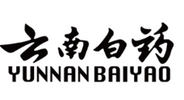Tips for EIPH in Horses
Posted by yunnan baiyao shop on Jul 30th 2024
Introduction to EIPH in Horses
Exercise-Induced Pulmonary Hemorrhage (EIPH) is a respiratory condition frequently observed in horses engaged in intense physical activity. It is estimated that up to 95% of racehorses may experience EIPH, detectable through endoscopic examinations post-exercise.
What is EIPH?
EIPH involves bleeding within the lungs during physical exertion. Typically, this condition is only identified through an endoscopic inspection of the airways post-exercise. In some instances, horses may exhibit nosebleeds, a condition known as epistaxis.
Symptoms of EIPH
Key indicators of EIPH include:
•Reduced athletic performance
•Halting during exercise
•Frequent swallowing and coughing post-exercise
•Nosebleeds or sudden death during exercise
A definitive diagnosis usually requires an endoscopic examination or a tracheal wash. In cases where blood is not visible in the trachea, a bronchoalveolar lavage (BAL) can confirm EIPH in the smaller airways. The severity of EIPH can be assessed using a grading system from 0 to 4.
EIPH risk factors include:
•High-intensity exercise
•Racing as opposed to training
•Long-term racing history
•Older age
•Jump racing
•Male horses
•Ambient temperatures below 20°C
•Hard ground conditions
•Lower airway inflammation
Use Herb to Manage EIPH
EIPH can be a progressive condition, with repeated episodes potentially causing lasting lung damage. Yunnan Baiyao has great results in stopping internally and externally bleeding. Many horse owners have used this natural herbal-the powder formula to help their horses and gained great result.
Other Strategies
•Rest and Adaptation: Allowing lung tissue to heal through rest and modifying training schedules can help reduce repeat episodes.
•Healthy Environment: Optimizing the horse’s living conditions to support respiratory health, especially if lower airway inflammation is present.
•Gradual Conditioning: Developing exercise programs that focus on building stamina and strength before increasing speed and intensity.
Nutritional Support for EIPH
Certain nutritional supplements may support horses with EIPH, including:
•Vitamin C: Crucial for collagen construction, blood vessel maintenance, red blood cell formation, wound healing, tissue repair, and immune function.
•Vitamin K: Essential for blood clotting processes.
•Bioflavonoids: Linked to vitamin C functions, useful in reducing bruising and maintaining capillary strength and function, as well as enhancing immune response.
Conclusion
While EIPH is a common condition among racehorses, understanding its symptoms, causes, and management strategies can help mitigate its effects. Nutritional support and appropriate exercise regimes play a vital role in managing this condition.

